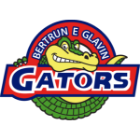Health Issues
Allergies/Medical Conditions
Health care plans will be developed in consultation with families for any student with a life-threatening or serious medical condition which could affect the student during the school day. As some children have life-threatening allergies, children are not allowed to share or trade any food or drink with others. When contributing to classroom snacks or parties, please check with the teachers about any food or medical restrictions.
Medication
Medication will only be administered to students in accordance with school division policy. Students are not allowed to self-administer medication, except for puffers. In the interest of safety, parents must complete a form and hand deliver the medication to the school prior to the school administering medication. These forms can be obtained from the office. The first dose of medication must be administered at home. The school cannot administer over-the-counter medication unless it is prescribed by a doctor and has a pharmacy label.
Communicable Diseases
Occasionally cases of communicable disease occur in schools. Pediculosis (head lice), pink eye and other skin infections are some examples. We ask that you keep your child at home until either your family doctor or the public health nurse has indicated it is safe to return. Should we discover such cases, we will notify the public health nurse and the child's parents. In the case of lice, a pamphlet describing how to identify and control the spread will be distributed to all members of a class where lice are found. It is a parents’ responsibility to monitor their child’s health and to notify the school if you suspect a case of lice, scabies, pink eye etc.
 Bertrun E. Glavin School
Bertrun E. Glavin School